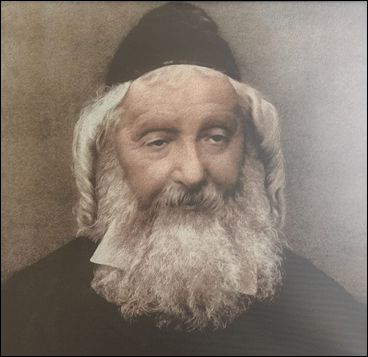
This article examines Rabbi Naftali Zvi Yehuda Berlin’s (the Netziv) revolutionary interpretation of the sin of the spies in Numbers 13-14, demonstrating how his 19th-century reading challenges conventional understandings of faith, religious idealism, and engagement with worldly responsibility. While classical commentators from Rashi to Abarbanel interpret the spies’ sin as faithlessness, fear, or political manipulation, the Netziv presents a radically different analysis: the spies were deeply religious individuals whose error lay not in rejecting God but in rejecting history, nationhood, and the challenges of ordinary life (Netziv. Ha’amek Davar, (n.d)).
Writing during the upheavals of the Haskalah (Jewish Enlightenment), the Netziv argues that the spies preferred the spiritual purity of wilderness existence—with its direct divine provision, miraculous sustenance, and protected contemplative life—to the messy realities of national existence in the Promised Land (Netziv. Ha’amek Davar, (n.d); Stampfer, 2012). Their sin was misguided religious idealism that feared the spiritual compromises required by farming, warfare, politics, and the sanctification of ordinary human activities (Scholem, 1978; Scholem, 1995). The Netziv’s interpretation transforms their rebellion from simple faithlessness into a sophisticated theological error: the preference for otherworldly spirituality over the divine calling to bring Torah into real-world engagement (Scholem, 1995; Scholem, 1991).
This reading reflects the Netziv’s broader theological response to modernity’s challenges, rejecting both secular assimilation and religious withdrawal while advocating for Torah engagement with contemporary life (Scholem, 1995; Scholem, 1995). His analysis anticipates themes central to Religious Zionism, though his concerns extend beyond political questions to fundamental issues about the relationship between spiritual idealism and practical responsibility (Wiesel, 1985; Wiesel, 2006). The article demonstrates how the Netziv’s methodology combines rigorous textual analysis with psychological insight and contemporary relevance, revealing how ancient narratives speak to perennial tensions between purity and engagement, contemplation and action, spiritual safety and transformative challenge (Wiesel, 1976; Wiesel, 1978).
The Netziv’s interpretation offers valuable insights for contemporary discussions about religious education, professional ethics, and the integration of spiritual values with worldly responsibility (Charon, 2006; Charon, 2001). His warning against the temptation of spiritual retreat speaks directly to healthcare professionals, educators, and religious practitioners who must navigate between idealistic aspirations and practical engagement with human needs in all their complexity (Cassell, 1991; Hauerwas, 1990).
Keywords: Netziv; spies; biblical interpretation; religious idealism; Haskalah; wilderness; Promised Land; Torah engagement; spiritual retreat; Religious Zionism; hermeneutic method; modernity; faith and history
Citation: Ungar-Sargon, J. (2025). The Dual Nature of Halachic Decision-Making: Rational and Intuitive Pathways in Law and Their Applications to Healthcare and Theology. J Psychol Neurosci; 7(3):1-13.
DOI : https://doi.org/10.47485/2693-2490.1116













